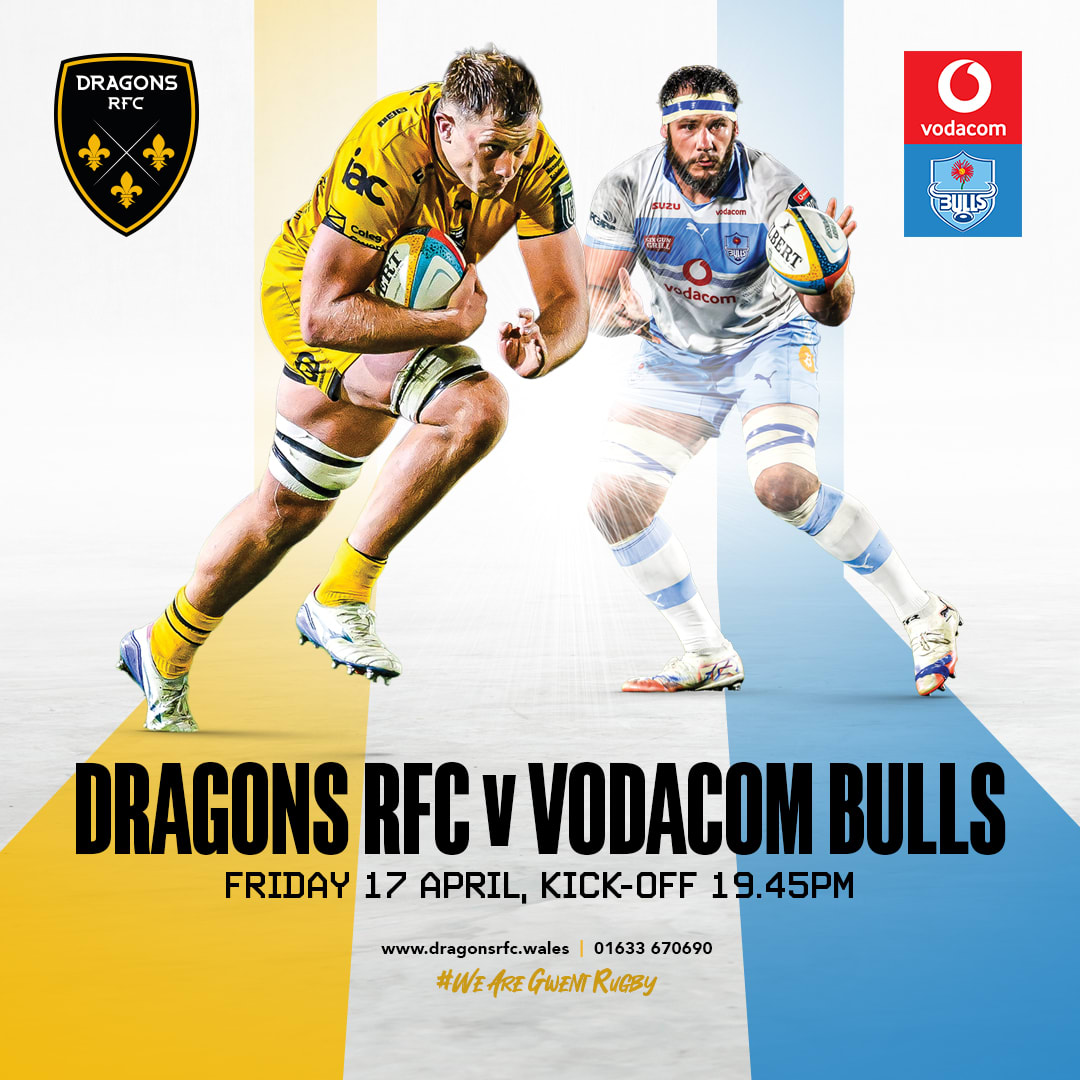WHEN YOU DECIDE TO SPEAK OUT ON A SENSITIVE TOPIC, THERE IS OFTEN A FEAR OF HOW WHAT YOU SAY WILL BE RECEIVED BY BOTH PEOPLE YOU DO AND DO NOT KNOW.
Whilst it’s not always easy to be confronted with opinions you do not agree with, as well as the overwhelming abuse dished out by Twitter trolls, I’m pleased to be able to say that the positivity that has come as a result of speaking out about racism outweighs the negativity.
You may know me as a Dragons rugby player and, more recently, you may have seen conversations around racism that I have been encouraging on social media. Being a 25-year-old, mixed-race man, born and raised in Newport, with both Welsh and Jamaican heritage, you can imagine that the topic of racism is something that I am extremely passionate about. This passion was amplified by the Black Lives Matter movement and the recent peaceful protests that took place across the world.
I’d like to take this opportunity to explain what ‘black lives matter’ means to me. It is a simple statement, calling for black people to be treated equally and for the social problem that is racism to be solved. Therefore, when myself, family, friends or teammates stand (or kneel) in support of black lives matter, it is the movement and not the organisation that is being supported. I support the movement because there are many people in my life that I care about who have far too often been victims of racism and knowing how it feels, it is something that has to be addressed.
From a young age, I have experienced racism on the street and in sport. This has come as a shock to many of the people in the rugby community that I have had conversations with on this topic – with many of them not expecting a player such as myself to be faced with racism. Even in the rugby environment, hearing racist nicknames and stereotypical jokes would make me feel isolated and unable to be myself in a space that I should be completely comfortable in. Some incidents occurred more when I was younger, but it never goes away entirely and that is what’s jarred most with people I speak to.
Whether it be monkey chants targeted at me from the side-lines whilst I played as a child, to being stopped and searched countless times. These conversations often consist of them being able to count the number of encounters they’ve had with the police on one hand (or finger) and that they couldn’t even imagine being stopped and searched whilst walking their dog!
This is one of the main positives that came as a result of speaking out. It encouraged these conversations that otherwise probably wouldn’t have happened, and helped others understand my experiences and how racism, in all of its different forms, has made me feel.
I’m proud to say that these conversations have led to more positivity, with team-mates calling and texting to find out more and gain greater understanding of the deep-rooted social issue that they now recognise. Also, it’s not only players that have been supportive of everything I have been doing. I have to thank the Dragons as a club for the way they have supported me over the last few months. From David Buttress (our Chairman) to Dean Ryan (Director of Rugby) and James Chapron (General Manager), who have all been great in supporting me and allowing me to be myself. I know that this is not the case at every other organisation and in every other sector – with black people often concerned that they will face consequences for being so vocal on such a topic.
I also have to extend my thanks to the community team at the Dragons, who I know are coming up with ways to actively improve inclusivity and diversity at the grassroots level by trying to engage with more black and minority children.
Furthermore, I can’t express how encouraging the support from fans has been. It has truly shown how great the game of rugby is, with it not only being Dragons fans sending me positive messages and shutting down the trolls of Twitter in my defence, but rugby fans from all over (although some have wished for a bad performance when playing their team!).
I’d also like to shed light on, and thank, Positive Futures for all of the work that they do within my community. Myself and team-mate Leon Brown (you know, the rather large tight head that enjoys finishing 30m tries) are proud ambassadors of the organisation that works with young people from disadvantaged backgrounds, trying to combine sport and education with rugby often being used to develop core values and encourage inclusivity. With racism and discrimination often being an issue that the young people they work with face in their day-to-day lives, Positive Futures actively do what they can to tackle the issue.
I’d like to finish by saying that I don’t expect everybody to agree with absolutely everything that I say and I can’t force anybody to do so. But I’d like to think that most would agree to taking a stand against racism. I’d really love, and appreciate, if everybody just asked questions and gave a little time to learn a bit more about the issues and the ways in which they can be tackled. If you do, then please educate others – that is what is going to help others not to feel isolated because of their skin colour, wherever it may be - and encourage change.
Thank you for reading.
Ashton





